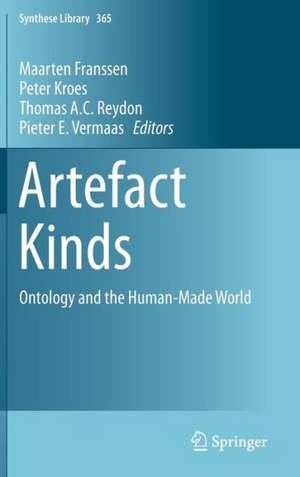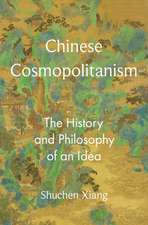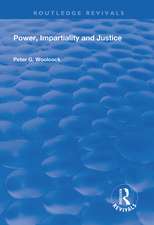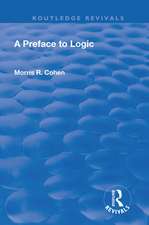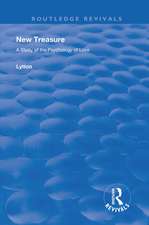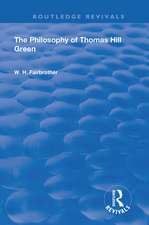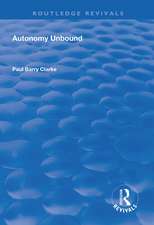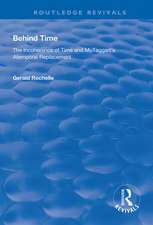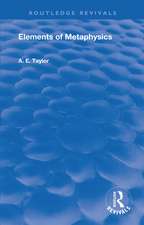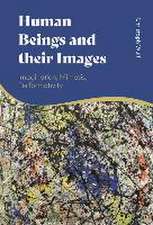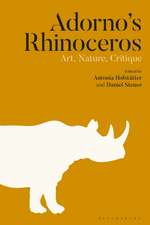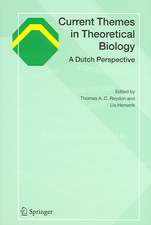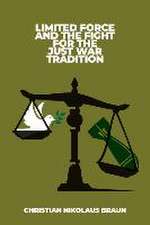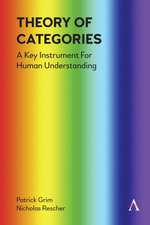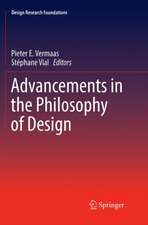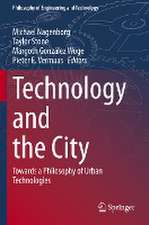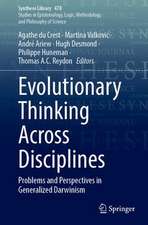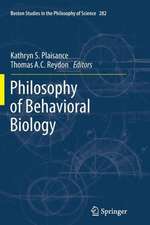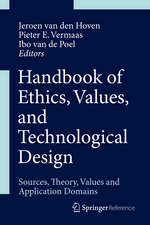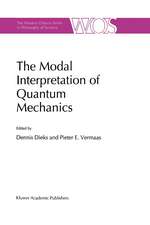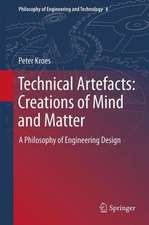Artefact Kinds: Ontology and the Human-Made World: Synthese Library, cartea 365
Editat de Maarten Franssen, Peter Kroes, Thomas A.C. Reydon, Pieter E. Vermaasen Limba Engleză Hardback – 17 oct 2013
This volume is structured in three parts. The contributions in Part I address basic ontological and metaphysical questions in relation to artefact kinds: How should we conceive of artefact kinds? Are they real kinds? How are identity conditions for artefacts and artefact kinds related? The contributions in Part II address meta-ontological questions: What, exactly, should an ontological account of artefact kinds provide us with? What scope can it aim for? Which ways of approaching the ontology of artefact kinds are there, how promising are they, and how should we assess this? In Part III, the essays offer engineering practice rather than theoretical philosophy as a point of reference. The issues addressed here include: How do engineers classify technical artefacts and on what grounds? What makes specific classes of technical artefacts candidates for ontologically real kinds, and by which criteria?
| Toate formatele și edițiile | Preț | Express |
|---|---|---|
| Paperback (1) | 723.69 lei 6-8 săpt. | |
| Springer International Publishing – 23 aug 2016 | 723.69 lei 6-8 săpt. | |
| Hardback (1) | 729.68 lei 6-8 săpt. | |
| Springer International Publishing – 17 oct 2013 | 729.68 lei 6-8 săpt. |
Din seria Synthese Library
- 15%
 Preț: 638.43 lei
Preț: 638.43 lei - 18%
 Preț: 989.98 lei
Preț: 989.98 lei - 15%
 Preț: 596.69 lei
Preț: 596.69 lei - 18%
 Preț: 903.93 lei
Preț: 903.93 lei - 15%
 Preț: 586.88 lei
Preț: 586.88 lei - 15%
 Preț: 696.50 lei
Preț: 696.50 lei - 18%
 Preț: 892.90 lei
Preț: 892.90 lei - 15%
 Preț: 643.34 lei
Preț: 643.34 lei -
 Preț: 282.33 lei
Preț: 282.33 lei - 5%
 Preț: 372.19 lei
Preț: 372.19 lei -
 Preț: 443.10 lei
Preț: 443.10 lei - 15%
 Preț: 637.59 lei
Preț: 637.59 lei - 18%
 Preț: 958.88 lei
Preț: 958.88 lei - 15%
 Preț: 642.36 lei
Preț: 642.36 lei - 18%
 Preț: 1230.66 lei
Preț: 1230.66 lei - 15%
 Preț: 642.83 lei
Preț: 642.83 lei - 18%
 Preț: 1000.39 lei
Preț: 1000.39 lei -
 Preț: 389.70 lei
Preț: 389.70 lei - 15%
 Preț: 637.28 lei
Preț: 637.28 lei - 18%
 Preț: 952.26 lei
Preț: 952.26 lei - 18%
 Preț: 1231.32 lei
Preț: 1231.32 lei - 15%
 Preț: 645.96 lei
Preț: 645.96 lei -
 Preț: 395.85 lei
Preț: 395.85 lei -
 Preț: 400.47 lei
Preț: 400.47 lei - 18%
 Preț: 1225.48 lei
Preț: 1225.48 lei - 15%
 Preț: 638.89 lei
Preț: 638.89 lei - 18%
 Preț: 1232.09 lei
Preț: 1232.09 lei -
 Preț: 380.45 lei
Preț: 380.45 lei -
 Preț: 394.87 lei
Preț: 394.87 lei - 15%
 Preț: 640.37 lei
Preț: 640.37 lei - 15%
 Preț: 639.08 lei
Preț: 639.08 lei -
 Preț: 381.98 lei
Preț: 381.98 lei - 15%
 Preț: 643.00 lei
Preț: 643.00 lei - 15%
 Preț: 672.29 lei
Preț: 672.29 lei
Preț: 729.68 lei
Preț vechi: 889.85 lei
-18% Nou
Puncte Express: 1095
Preț estimativ în valută:
139.63€ • 146.15$ • 116.21£
139.63€ • 146.15$ • 116.21£
Carte tipărită la comandă
Livrare economică 31 martie-14 aprilie
Preluare comenzi: 021 569.72.76
Specificații
ISBN-13: 9783319008004
ISBN-10: 3319008005
Pagini: 230
Ilustrații: VI, 225 p. 3 illus., 1 illus. in color.
Dimensiuni: 155 x 235 x 20 mm
Greutate: 0.5 kg
Ediția:2014
Editura: Springer International Publishing
Colecția Springer
Seria Synthese Library
Locul publicării:Cham, Switzerland
ISBN-10: 3319008005
Pagini: 230
Ilustrații: VI, 225 p. 3 illus., 1 illus. in color.
Dimensiuni: 155 x 235 x 20 mm
Greutate: 0.5 kg
Ediția:2014
Editura: Springer International Publishing
Colecția Springer
Seria Synthese Library
Locul publicării:Cham, Switzerland
Public țintă
ResearchCuprins
Chapter 1. Introduction: The Ontology of Technical Artefacts; Maarten Franssen, Peter Kroes, Thomas A. C. Reydon and Pieter E. Vermaas.- Part I: Artefact Kinds and Metaphysics.- Chapter 2. How Real are Artefacts and Artefact Kinds?; E. J. Lowe.- Chapter 3. Artifacts and Mind-Independence; Crawford L. Elder.- Chapter 4. Public Artifacts, Intentions, and Norms; Amie L. Thomasson.- Chapter 5. Artefact Kinds, Ontological Criteria and Forms of Mind-Dependence; Maarten Franssen and Peter Kroes.- Chapter 6. Artifact Kinds, Identity Criteria and Logical Adequacy; Massimiliano Carrara, Silvia Gaio and Marzia Soavi.- Part II: Artefact Kinds and New Perspectives.- Chapter 7. Creating Artifactual Kinds; Jesús Vega-Encabo and Diego Lawler.- Chapter 8. Metaphysical and Epistemological Approaches to Developing a Theory of Artifact Kinds; Thomas A. C. Reydon.- Chapter 9. Ethnotechnology: A Manifesto; Beth Preston.- Part III: Artefact Kinds and Engineering Practice.- Chapter 10. On What is Made: Instruments, Products and Natural Kinds of Artefacts; Wybo Houkes and Pieter E. Vermaas.- Chapter 11. Artefactual Systems, Missing Components and Replaceability; Nicola Guarino.- Chapter 12. Engineering Differences Between Natural, Social and Artificial Kinds; Eric T. Kerr.
Textul de pe ultima copertă
This book is concerned with two intimately related topics of metaphysics: the identity of entities and the foundations of classification. What it adds to previous discussions of these topics is that it addresses them with respect to human-made entities, that is, artefacts. As the chapters in the book show, questions of identity and classification require other treatments and lead to other answers for artefacts than for natural entities. These answers are of interest to philosophers not only for their clarification of artefacts as a category of things but also for the new light they may shed on these issue with respect to to natural entities.
This volume is structured in three parts. The contributions in Part I address basic ontological and metaphysical questions in relation to artefact kinds: How should we conceive of artefact kinds? Are they real kinds? How are identity conditions for artefacts and artefact kinds related? The contributions in Part II address meta-ontological questions: What, exactly, should an ontological account of artefact kinds provide us with? What scope can it aim for? Which ways of approaching the ontology of artefact kinds are there, how promising are they, and how should we assess this? In Part III, the essays offer engineering practice rather than theoretical philosophy as a point of reference. The issues addressed here include: How do engineers classify technical artefacts and on what grounds? What makes specific classes of technical artefacts candidates for ontologically real kinds, and by which criteria?
This volume is structured in three parts. The contributions in Part I address basic ontological and metaphysical questions in relation to artefact kinds: How should we conceive of artefact kinds? Are they real kinds? How are identity conditions for artefacts and artefact kinds related? The contributions in Part II address meta-ontological questions: What, exactly, should an ontological account of artefact kinds provide us with? What scope can it aim for? Which ways of approaching the ontology of artefact kinds are there, how promising are they, and how should we assess this? In Part III, the essays offer engineering practice rather than theoretical philosophy as a point of reference. The issues addressed here include: How do engineers classify technical artefacts and on what grounds? What makes specific classes of technical artefacts candidates for ontologically real kinds, and by which criteria?
Caracteristici
Addresses ontologies of artefact kinds in engineering practice Offers practical as well as theoretical implications Presents important developments in both formal ontology and ontology engineering?
